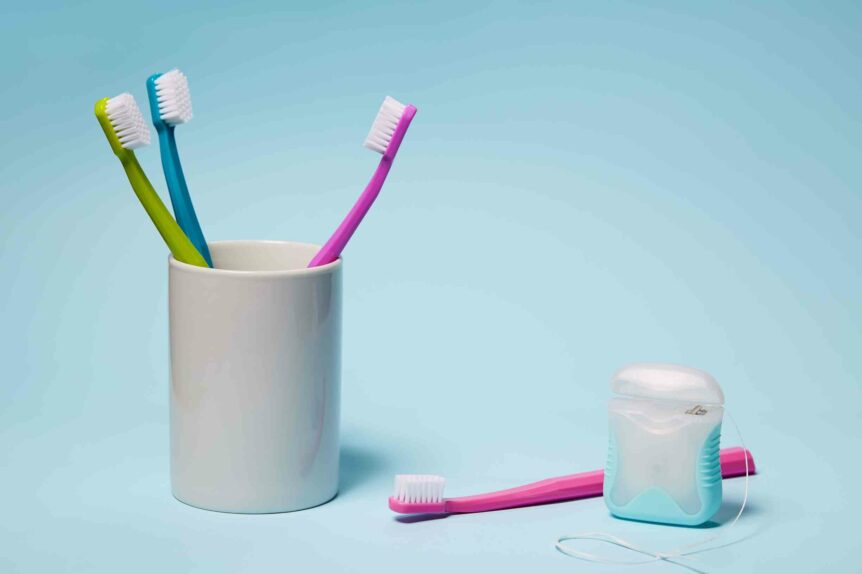Success is the final result produced by a combination of luck, effort and timing and the theory applies to both business and dental health. It is common knowledge that oral hygiene such as brushing, flossing and getting regular dental care from a licensed dentist is necessary to ensure teeth stay healthy and intact. However, in order to maximize the benefits surrounding those efforts, when the oral care practices are implemented is just as important as making sure the are done in the first place.
In regards to dental care, there are a myriad of myths that if followed, can result in irreparable damage to smile. The absolute truths surrounding oral hygiene is to eat a nutritious diet, exercise regularly, choose water over soda, brush twice a day for at least two minutes a session, floss every day and to get regular dental exams twice a year or as often as recommended by a dentist. However, just like a comedian delivering a punch line to a joke, timing is everything!
Floss Before Bedtime
Brushing is an important oral hygiene practice, however without backing it up by flossing individuals increase their odds of developing dental problems including tooth decay or gum disease and health issues such as diabetes and heart disease. Some suggest that skipping the practice of maneuvering a nylon thread through teeth to remove stray food particles and dental plaque buildup is a bit like taking a shower and only washing a small portion of your body. In order to get the full benefits of the oral hygiene practice, flossing everyday right before going to bed is a must.
During slumber, saliva production comes to a screeching halt. The naturally occurring liquid is the body’s natural defense for oral hygiene as the compound contains enzymes that can help neutralize acids produced by oral bacteria as a byproduct of digesting stray food particles deposited on teeth. Since saliva production slows down during slumber, flossing to remove excess plaque before bed will remove as much as the harmful bacteria as possible while lowering the risk of developing dental problems.
Schedule Major Dental Work After 2pm and in January or February
Dental anxiety is commonplace and individuals suffering from the condition know that time constraints surrounding dental procedures can trigger off even greater levels of stress. According to Bruce DeGinder, DDS, a dentist in Williamsburg, VA and president-elect of the Academy of General Dentistry January or February is the best time of year to schedule major dental work. (https://www.prevention.com/health/health/healthy-lifestyle/the-best-time-to-do-everything/article/046866263d803110VgnVCM20000012281eac____/4). Historically, those months are the slowest for dental clinics nationwide which will allow nervous patients to handpick the best time for their dental procedure.
It is also recommended that any major dental procedure such as root canal or tooth extractions should be scheduled after 2pm for individuals who follow a convention 9 to 5 schedule as it will help minimize the discomfort associated with the procedure. According to DeGinder, the medications for those types of dental procedures generally last for 8 to 10 hours, which will block any discomfort until bedtime.
Wait 30 Minutes After Eating or Drinking to Brush Teeth
Harmful bacteria start to feast on food deposits left on teeth within seconds of the act. That may encourage some individuals to immediately take toothbrush to teeth after eating or drinking as a proactive approach to preventative dentistry. Unfortunately, that oral hygiene move may cause more harm than good as the process can rub away tooth enamel which as naturally softened during the mastication process and premature brushing can contribute to unnecessary tooth erosion.
Instead of taking brush to teeth right after consuming foods and beverages, individuals are advised to drink fresh water to wash away residue and neutralize acids left behind. Tooth enamel should be allowed to rest for at least 30 minutes in order to harden and regain its protective abilities.
Individuals looking for other dental care timing tips can get the best advice from speaking directly to their dentist. Patients without a dental care provider in their medical team can call WH Family Dental at any time to get the contact information for a great dentist that has already been screened for their proof of education and skills.

